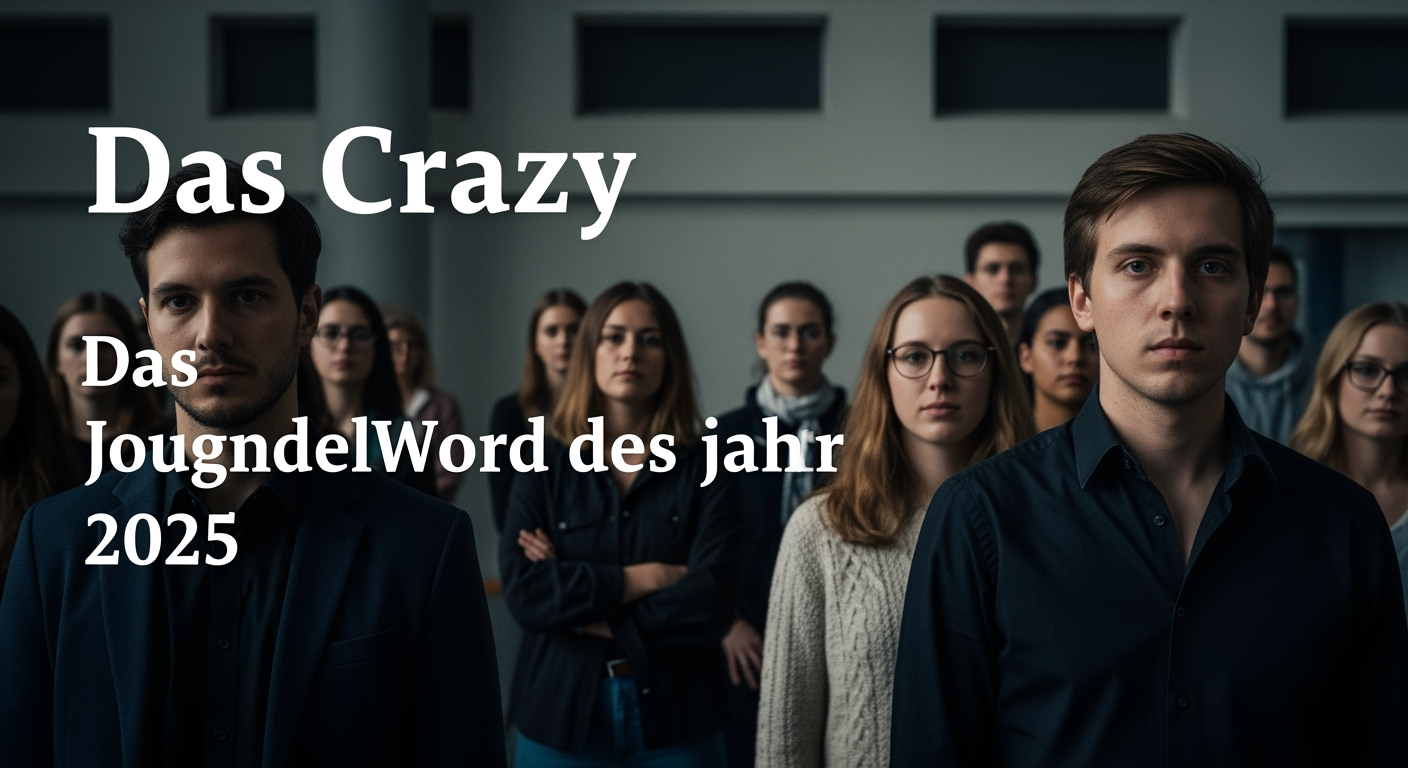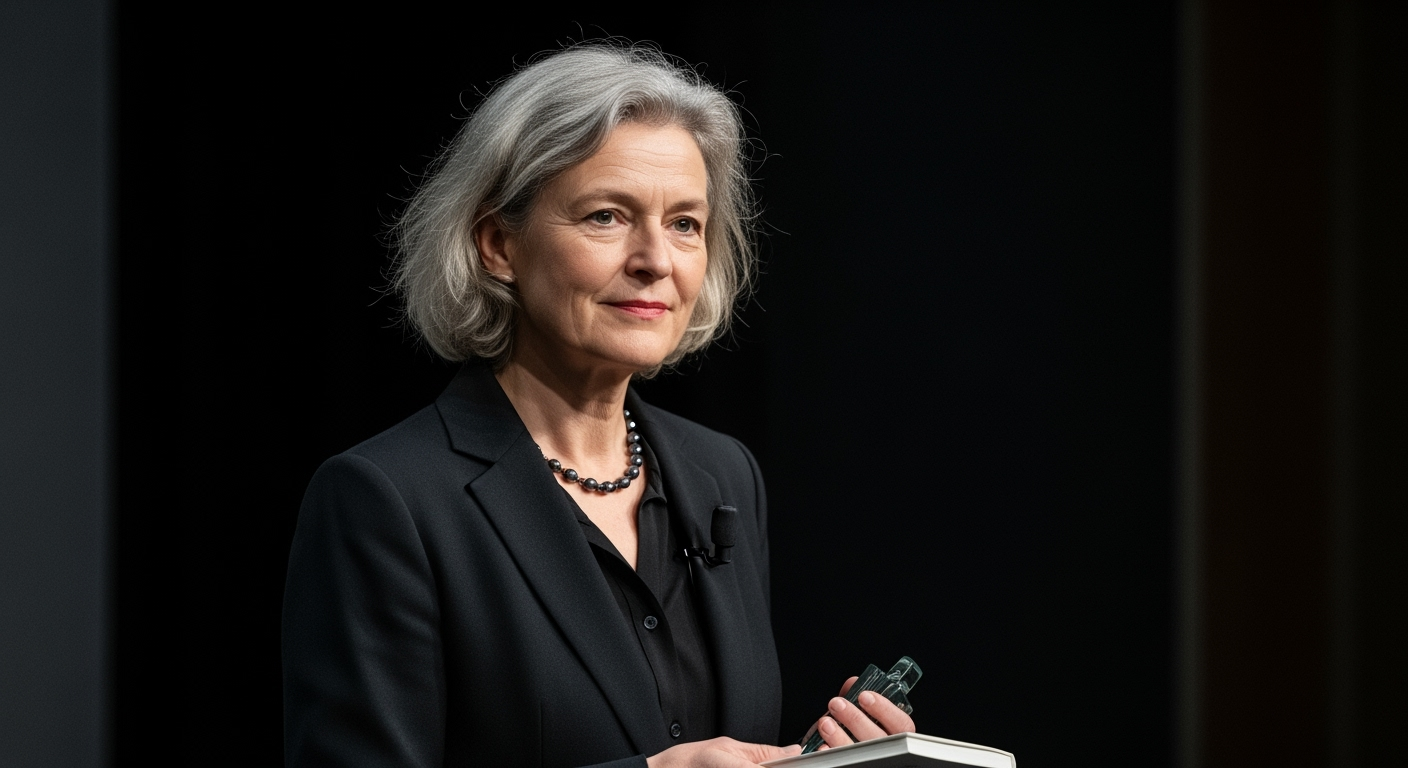Related Articles

Daring Daylight Heist Shakes Louvre, Priceless Jewels Vanish

"Das crazy" Crowned German Youth Word of the Year 2025, Reflecting English Influence and Linguistic Nuance





Frankfurt am Main, Germany – Swiss author Dorothee Elmiger has been awarded the prestigious 2025 German Book Prize (Deutscher Buchpreis) for her novel, Die Holländerinnen (The Dutch Women), a work praised by the jury as "an event" and a "fascinating trip into the heart of darkness." The announcement was made on the evening of October 13, 2025, during a ceremony held in the historic Kaisersaal of the Frankfurt Römer, just days before the official opening of the Frankfurt Book Fair. Elmiger, born in 1985 and considered one of the most promising contemporary Swiss writers, receives a prize of 25,000 euros for her literary achievement, which delves into themes of fear, disappearance, and the unsettling nature of reality.
The German Book Prize stands as one of the most significant and respected literary awards in the German-speaking world, celebrating the best German-language novel of the year. Established in 2005, its primary objective is to elevate awareness for authors writing in German, both nationally and internationally, and to underscore the pivotal role of literature in contemporary culture. The timing of its announcement, preceding the Frankfurt Book Fair, traditionally amplifies its impact, setting a literary tone for one of the world's largest book trade events. This year's win marks a notable moment for Swiss literature, with Elmiger's work garnering critical acclaim across the linguistic landscape. Each of the five other authors on the shortlist also received recognition, with a prize of 2,500 euros, acknowledging the high caliber of competition.
Elmiger's winning novel, Die Holländerinnen, published by Carl Hanser Verlag, has captivated critics with its intricate narrative and unsettling atmosphere. The story unfolds through the lens of a writer who recounts her journey into the South American jungle alongside a theater group. Their mission: to retrace the steps and investigate the mysterious disappearance of two Dutch women who vanished in the remote wilderness years prior. As the group ventures deeper into the dense rainforest, the boundaries of their theatrical project blur with a disorienting reality. The expedition veers into disarray, leading the participants to a state of mild madness and prompting them to share disturbing tales from their past.
The jury's commendation highlighted the novel's profound effect, noting how Elmiger masterfully draws readers into a "vortex of fear". The narrative, largely rendered in indirect speech, creates a sense of detachment that paradoxically makes the experience all the more gripping. Jurors observed that the novel explores how individuals succumb to their "darkest opposite," with Elmiger's style simultaneously "distanced yet captivating". The work's indirect language also serves as a subtle commentary on a contemporary reality increasingly prone to "self-aggrandizement," blurring the lines between fiction and truth, making the "horror" manifest beyond explicit language.
Dorothee Elmiger, born in Wetzikon, Switzerland, in 1985, has long been recognized as a formidable voice in German-language literature. Her academic background, encompassing history, philosophy, and political science studies in Zurich, as well as literary writing at the Swiss Literary Institute in Biel and literature studies in Leipzig, has undoubtedly shaped her incisive approach to storytelling. Now residing in New York, Elmiger is known for her experimental and socially critical texts, which deftly weave together fictional and documentary elements to explore complex themes such as capitalism, history, and identity. Her distinctive use of poetic and dense language has consistently drawn critical praise.
Prior to this landmark win, Elmiger had already amassed a significant body of work and a string of accolades, underscoring her consistent impact on the literary scene. Her debut novel, Einladung an die Waghalsigen (Invitation to the Bold of Heart), was published in 2010, followed by Schlafgänger (Shift Sleepers) in 2014. Her 2020 novel, Aus der Zuckerfabrik (Out of the Sugar Factory), was notably shortlisted for both the German Book Prize and the Swiss Book Prize, foreshadowing her current triumph. Her previous awards include the Kelag Prize (2010), the Aspekte Literature Prize for the best German-language prose debut, the Rauris Literature Prize, a Swiss Literature Award, and the Erich Fried Prize, among others. Her continued nomination for the Swiss Book Prize for Die Holländerinnen further solidifies her standing in her home country. The German Book Prize win, coinciding with her 40th birthday, marks a celebratory milestone in an already distinguished career.
The German Book Prize undergoes a rigorous, multi-stage selection process designed to identify the most compelling novel of the year. Publishers from Germany, Austria, and Switzerland are invited to submit up to two German-language novels from their current or planned lists. From these submissions, a longlist of 20 titles is curated, which is then narrowed down to a six-book shortlist. This year, the jury, chaired by Laura de Weck of Swiss Radio and Television, comprised a diverse group of literary experts, including academics, critics, and booksellers. They reviewed 229 titles published between October 2024 and September 2025 to arrive at their final decision.
The 2025 shortlist was notably strong, reflecting a "precarious reality" and exploring "psychological, social and political abysses" through varied narrative voices and styles, as noted by the jury chair. Alongside Elmiger's winning work, the other five nominated authors and their acclaimed novels included Kaleb Erdmann for Die Ausweichschule, Jehona Kicaj for ë, Thomas Melle for Haus zur Sonne, Fiona Sironic for Am Samstag gehen die Mädchen in den Wald und jagen Sachen in die Luft, and Christine Wunnicke for Wachs. These works collectively demonstrated the vitality and critical engagement of contemporary German-language fiction, addressing themes from war crimes and climate crisis to self-determination and historical convention. The jury acknowledged that despite the often bleak subjects, each book on the shortlist offered a "liberating experience" through its deeply literary approach.
Dorothee Elmiger's triumph with Die Holländerinnen at the 2025 German Book Prize not only shines a spotlight on her singular talent but also reaffirms the prize's commitment to recognizing literature that grapples with the complexities of the modern world. Her novel's exploration of fear, the blurring of reality, and the human response to unsettling circumstances resonates deeply with contemporary anxieties. This award will undoubtedly further elevate her standing within international literary circles, drawing new readers to her unique and thought-provoking body of work. As the literary world gathers in Frankfurt, Elmiger's win serves as a powerful testament to the enduring power of storytelling to confront, question, and illuminate the human condition.